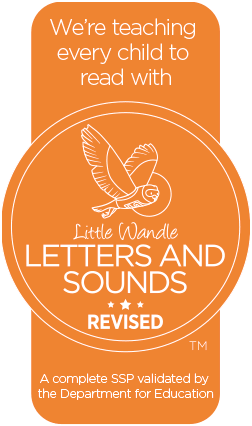Curriculum Introduction
Here at St. Paul’s we provide a creative curriculum based around the Cornerstones Curriculum.
We have been working hard to refresh our school approach and provision for pupils. As part of this work we have decided to implement the new Cornerstones Curriculum, a nationally recognised approach for delivering outstanding learning opportunities for children.
- Curriculum Overview – 2024/25
What is the Cornerstones Curriculum?
The Cornerstones Curriculum is a creative and thematic approach to learning that is mapped to the 2014 Primary National Curriculum to ensure comprehensive coverage of national expectations. Our new curriculum will be delivered through Imaginative Learning Projects (ILPs) which will provide a rich menu of exciting and motivating learning activities that make creative links between all aspects of our children’s learning.
We believe children learn better when they are encouraged to use their imagination and apply their learning to engaging contexts. Our new curriculum will provide lots of learning challenges throughout the academic year that will require children to solve problems, apply themselves creatively and express their knowledge and understanding effectively across the curriculum.
Cornerstones also provide a rigorous essential skills framework that outlines the end of year expectations in all subjects. These essential skills are tied to activities and are age related so that staff can track children’s progress and identify their individual learning needs.
How it Works?
Children will progress through four stages of learning in each ILP – Engage, Develop, Innovate and Express. To find out more about these stages please visit the Cornerstones website
Early Reading at St. Paul’s
At St. Paul’s we want all of our children to become successful, fluent readers and writers. We teach early reading through the systematic, synthetic phonics programme Little Wandle Letters and Sounds Revised.
Little Wandle Letters and Sounds Revised ensures that the children build on their growing knowledge of the alphabetic code and master the phonic skills to read and spell as they move through school.
The foundations for phonics begin with our youngest children where there is an emphasis on developing children’s speaking, listening and awareness of sound. This provision ensures children are well prepared to begin grapheme–phoneme correspondence and blending at the start of Reception.
In Reception the children have a daily phonics lesson which follows the progression for Little Wandle Letters and Sounds and this continues in Year One and where necessary Year Two to ensure children become fluent readers.
We teach phonics for 30 minutes a day. In Reception, we build from 10-minute lessons, with additional daily oral blending games, to the full-length lesson as quickly as possible. Each Friday, we review the week’s teaching to help children become fluent readers.
Half termly assessments take place through Reception, Year 1 and Year 2 to help inform future teaching and help identify children who have gaps in their phonic knowledge and need additional practice. Daily assessment of learning also takes place within the classroom so staff can quickly identify any children who are in danger of falling behind and provide the appropriate daily ‘Keep Up’ intervention.
Children are provided the opportunity to apply phonics knowledge through structured reading sessions where texts are carefully selected to match children’s phonetic knowledge allowing them practise decoding, prosody and comprehension.
To see our phonics progression, support with the pronunciation of the phonemes taught and a glossary of key terms, please refer to the videos and document on the website below:
- Presentation on KS2 Reading – October 2024


